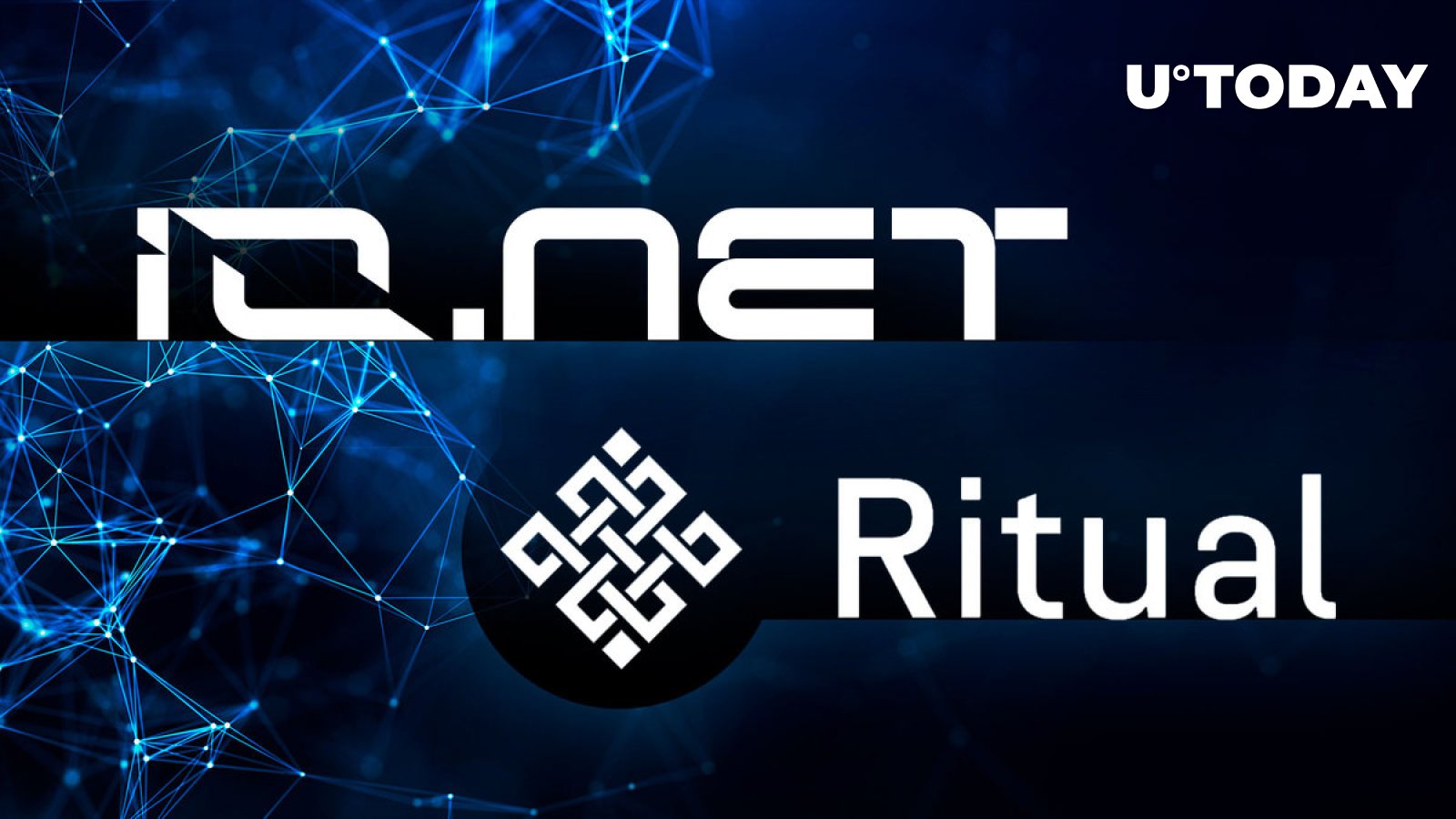The groundbreaking collaboration aims to harness and amplify existing synergies between the two platforms, marking a significant step forward in disrupting the AI computing sector.
Decentralized GPU network io.net has announced a strategic partnership with decentralized AI network Ritual. io.net offers tooling to facilitate streamlined access to low-cost GPU computing capacity, and it is io.net Cloud provides infrastructure and architecture for deploying decentralized GPU clusters sourced across multiple locations.
Ritual, meanwhile, empowers users to seamlessly integrate AI models into their protocols, applications or smart contracts with minimal coding effort.
As covered by U. Today previously, io.net launched a joint initiative with Render Network (RNDR), one of the largest AI crypto protocols.
Ahmad Shadid, founder of io.net, expressed enthusiasm about the long-term partnership and its potential effects for AI and ML businesses:
After we were introduced to Ritual, there was an instant connection and the potential synergies between our projects became apparent. Ritual’s tooling, particularly their Infernet SDK and node client, aligns with our vision for enhancing GPU utilization and opening up new markets. We’re excited to see how the partnership will attract more developers and enable groundbreaking use-cases in AI compute.
Also, io.net is collaborating with Filecoin’s ecosystem representatives in the segment of decentralized cloud computations.
Joining forces with io.net represents a significant milestone for Ritual. Their extensive infrastructure and global compute access capabilities, combined with our AI stack, create a powerful synergy. Together, we are poised to unlock new possibilities and efficiencies to benefit developers and users alike.
io.net plans to orchestrate Ritual’s Infernet SDK, Infernet node client and Ritual Chain components, supercharging GPU utilization on io.net Cloud, attracting more developers and enabling a plethora of fresh use cases and markets for the network.
Ritual is currently building a sovereign chain for AI, utilizing software that enables decentralized inference, model marketplaces and heterogenous proofs, along with modular tools that help bridge AI to on-chain workloads.

